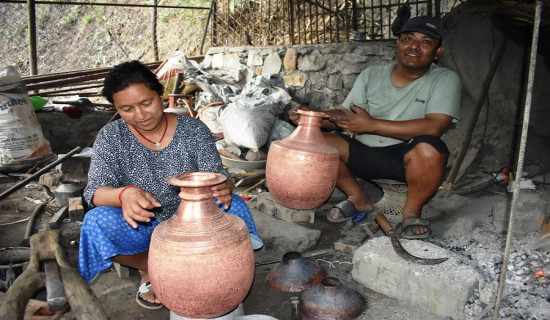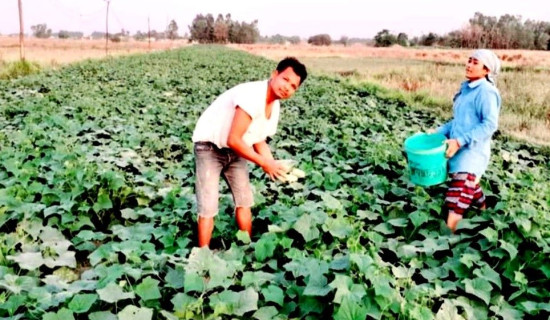- Tuesday, 13 May 2025
Drought And Food Crisis
The pattern in which rains come are showing unpredictable ways in recent decades. This is a phenomenon that scientists have ascribed to the impact of temperature rise and climate change. An uncommon tendency of weather observed in one particular year cannot be haphazardly attributed to climate change but irregular things are occurring over a long period of time. The unusual meteorological phenomena are happening in the form of inadequate rains, excessive rains and prolonged dry spells. If we take a look at the rainfall pattern of this year, there is no major rainfall in the past five months. An unusual thing about this is that there was no winter rain which plays an important role in Nepal's winter crops. This has had a significant impact on farming because most of the farmland in the country lacks irrigation facilities.
Nepali farmers heavily depend on rains for farming and this year's absence of winter rains is sure to cause a decline in the output of winter crops such as vegetables, wheat, barley, potatoes and beans. The reduced production of the winter agro products is going to make the concerned farmers bear considerable losses. Declined supply will also have an impact on the consumers with possible rise in the prices of winter vegetables. Potatoes, onions and a host of green leafy vegetables are essential regular items in the Nepali kitchens and the lack of winter rains has its negative impact on the supply situation and has made these items dearer.
Potatoes and onions produced during winter and spring are supplied throughout the year. Their prices are expected to rise in the days to come. To sum up the issue, this year's prolonged dry spell is going to have negative effect on consumer market and further dependence on the supply of vegetables from India. A burning problems triggered by the winter drought has been reported from Rukum East in Lumbini Province where farmers are deeply worried about impending food crisis caused by lack of snow and winter rains. In this mountain district, sufficient snowfall is needed for vital moisture in apple cultivation. The mountain farmers are going to bear huge losses in their horticulture venture as apple plants are dying in lack of soil moisture.
Timely snowfall is essential to maintain moisture for apple farming as well as grass sprouting in pasture range. The dry spell equally affects the apple cultivators and livestock farmers. The subsistence farmers are also nervous over upcoming food crisis as the lack of rains and snowfall has devastating effects on the production of beans, potatoes, wheat and barley. While the good snowfall and rains could help grow good crops, the drought has posed the threat of starvation in the district. Snow and rain are essential for tilling as well as sowing of new crops. For instance, the Rukum East farmers will not be able to sow maize if the dry spell prolongs further. A horticulture farmer recounted a sad tale of potential loss as 6,800 apple plants in his nursery have started wilting.

















